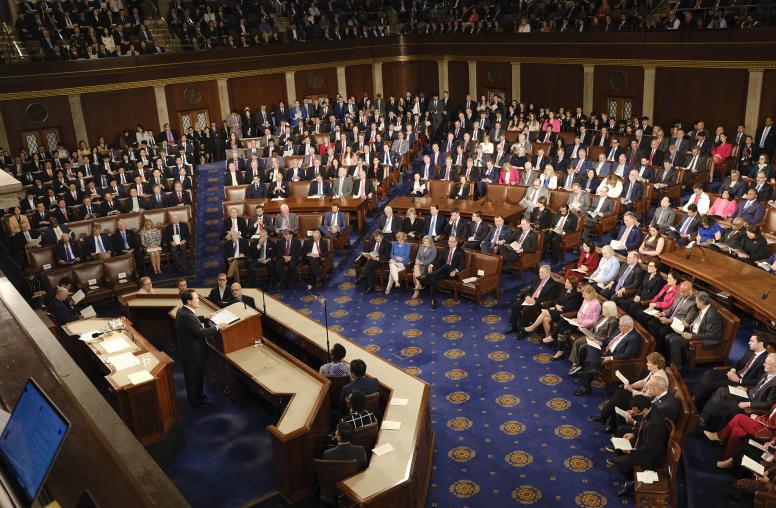Preserving the Free Flow of Information on the Internet: Serbs Thwart Milosevic Censorship, Round Two
On December 10, as part of the crackdown on academic "dissent" against the Milosevic regime, the dean of the School of Electrical Engineering demanded that switches on the Yugoslav academic Internet network be programmed to prevent users from accessing Radio B92's OpenNet website. This is the second time in the last three years that Milosevic has attempted to block the free flow of information available to Serbs via Radio B92 by physically denying access to the information.
This most recent action has affected non-academic organizations—such as independent media and nongovernmental organizations—who get their Internet access through the university. According to a recent Human Rights Watch press release, "OpenNet has played a central role in breaking the government's information blockade," said Human Rights Watch academic freedom specialist Joseph Saunders. "President Milosevic and his allies are spearheading a direct assault on the free flow of information."
To address these questions, the Institute invited actors in this drama to speak about their roles and provide an insider's perspective on the struggle to preserve the free flow of information during periods of conflict.
The briefing featured Drazen Pantic, the director of OpenNet, an Internet service provider in Serbia created by Radio B92; John Fox, director of the Open Society Institute - Washington; Gene Mater, Freedom Forum; Rob Timm of 99.1 FM WHFS radio and director, Balkans Independent Radio Project; and James Dempsey of the Center for Democracy and Technology.
Introducing the speakers, Bob Schmitt, the Institute's information systems manager stated, "The U.S. Institute of Peace has closely followed Radio B92's efforts to establish a legitimate voice and role for independent media in a formerly communist country. The experience of Radio B92 warrants careful attention as it represents some of the first attempts to use a new blend of media strategies to address the age-old problem of government attempts to restrict political dissent by limiting the free expression of ideas."
According to John Fox, "the misuse of the media in the former Yugoslavia during the early 1990's was a fundamental element in the series of wars suffered by the people of the former Yugoslavia. It would be hard to find a better example of a strong local partner developing innovatively in the most determined way in the media area than…Radio B92."
In the early days of the conflict in Bosnia, Radio B92 played a pivotal role in maintaining a flow of reliable reporting about these conflicts and developments in the region. "One of the most remarkable things about Radio B92 is that they seized and expanded rather small windows of opportunity regardless of the political environment in which they found themselves," said John Fox.
In November 1995, B92 founded OpenNet, Serbia's first Internet service provider (ISP). For the next six months, OpenNet was the only ISP in Serbia. Few Serbian citizens owned a computer or modem at the time, so B92 developed an audience by combining educational and outreach efforts (such as the "60-Plus" program to teach senior citizens about computers and the Internet) with technical infrastructure development and expansion.
This twin approach of mixing technological improvements with educational efforts enabled B92 to employ the Internet as a bridge to both the outside world and an engaged internal audience when, in December 1996, during the "Together" protests, the Milosevic regime created intermittent interruptions in service and finally, turned off B92's transmitters.
According to Drazen Pantic, Opennet's founder, "The only thing we could do was to start broadcasting over the Internet, which turned out to be a valuable tool in bypassing the ban." People in Serbia and around the world turned to the Internet for accurate reporting of the demonstrations in Belgrade.
At the same time, the Voice of America and Radio Free Europe were acquiring audio tapes of the banned broadcasts and began rebroadcasting Radio B92's programming from outside the country. As a result of the combined pressure between Internet and "old-style" broadcasting strategies, the government quietly restored power to B92's transmitters.
During 1997 and 1998 the Serbian media endured multiple assaults on its ability to freely report events and on October 8, 1998, the Serb Parliament passed a special decree banning all reports, both print and broadcast, that spread "fear, panic and defeatism." The decree also prohibited the rebroadcast of foreign news programs, such as the Voice of America and the BBC, a practice that was fairly common among the small independent radio stations in Serbia.
On October 20, 1998, the Serb parliament codified that decree and adopted a new public information law. The U.S. government and the OSCE have both criticized the law as draconian. To date, at least two radio stations, three daily newspapers, and one weekly news magazine have been shut down by the Serbian government as a result of the new law. (A partial listing of shutdowns can be found at the FreeSerbia website). One firm has been fined more than $500,000. According to Gene Mater, "This law—if allowed to stand—is the effective end of a free press in Serbia."
For OpenNet, the luxury of simply ordering additional equipment or technological upgrades does not exist. It wages a constant struggle to obtain enough phone lines to enable people to dial into Opennet and maintain stable Internet connections.
According to Pantic, "Bandwidth is always a problem." Additionally, the Serbian government is constantly applying pressure to the radio station and members of ANEM, a network of independent radio stations in Serbia. "That kind of pressure really forces us to think all of the time about working around, about trying to use new technologies to bypass the hostile measures," said Pantic.
When the most recent campaign against the independent media began, the Internet was also under tight control. The Serbian government proposed that owners of satellite dishes and users of Internet services be taxed. Pantic continued, "While it is easy to identify the owner of a satellite dish, it is not so easy to identify an Internet user unless the provider gives you that information."
Late last fall, the regime attempted to prevent access to Opennet by users of the Serbian academic network, a network of university facilities around the country. There was no announcement that access to OpenNet would be denied, rather, users simply found that the Opennet web sites were "unavailable."
OpenNet immediately informed the international community of its situation, and asked other Internet service providers to mirror Opennet's information. More than ten sites worldwide now mirror Opennet's content. The success of the mirroring campaign outflanked the regime's ability to block access to B92's material and by December 28, the Serbian academic network partially removed the filter. More specifically, the Serbian language news features are still being blocked although academic network users are able to read English versions of those features.
In an aside, Pantic noted that unrestricted email traffic was allowed during the ban, which allowed people to go to mirror sites, copy Serbian language news features, and distribute the news via email, rather than on a web site.
The example of B92 and Opennet, according to Rob Timm, "is extremely important. If it wasn't, the Milsoevic regime would not be paying attention to it. If what B92 was doing on the Internet didn't matter, the regime would not care about them. You can't have a free people without a free media. You can't fool people with a free media."
The experience of Radio B92 and OpenNet provides additional evidence that governmental attempts to regulate or block information is not very effective in today's global information culture. "What we're seeing in Serbia with Radio B92 is a magnified version of a conflict that is being played out all over the world," said James Dempsey.
"It is a technology that is user controlled, interactive and is a revolution in communications. Businesses, governments, individuals, human rights organizations, all have flocked to this technology because of it's power and flexibility. Governments recognize this power, want the benefits of this power…but at the same time they fear the power of this medium, they fear it's decentralized nature."
Dempsey continued: "There is an electronic cat and mouse game going on across the globe, literally country by country. The incremental defeats and victories that Radio B92 has experienced are being played out around the world."
As an example, Dempsey mentioned the case of Chinese software engineer Lin Hai and physicist and dissident Wang Youcai recently convicted by the Chinese government of using email to "incit(e) to overthrow state power." Lin Hai's crime was disclosing 30,000 Chinese email addresses to a U.S.-based dissident publisher.M
"What can we, what can the West, what can anybody do about this?" Dempsey went on to cite the example of the Open Society Institute's support for Internet infrastructure in the Balkans and stated that that helping to build the physical infrastructure needed to support these activities is vital to supporting the individuals "courageous enough to use it." He mentioned the potential of supporting wireless approaches to networking which would enable people to "leapfrog both the cost of building infrastructure and governmental controls."
Dempsey called Radio B92 "a voice for peace and tolerance: Compare it with radio in Rwanda and Burundi where it was used to stir up ethnic hatred and violence." Finally, in comparing governmental attempts to control information versus the growth of new communications technologies, he concluded, "I'm placing my bet on the technology. There's such a huge energy, such a huge devotion of human intelligence across the globe to this technology. I think we're going to see a lot of governments try very hard to shut it down. A lot of people will suffer in the process, will go to jail, will lose their livelihoods. But I think that ultimately that we have here is a technology of human expression that is unique and that will help promote democracy and peace."
Speakers
- Drazen Pantic
Director of OpenNet - John Fox
Director of the Open Society Institute - Washington - Gene Mater
Freedom Forum - Rob Timm
99.1 FM WHFS radio and director, Balkans Independent Radio Project - James Dempsey
Center for Democracy and Technology - Bob Schmitt
U.S. Institute of Peace, Information Systems Manager
Media Inquiries
Please contact Ian Larsen (+1.202.429.3870) or Lauren Sucher (+1.202.429.3822) in the Office of Public Affairs and Communications.









